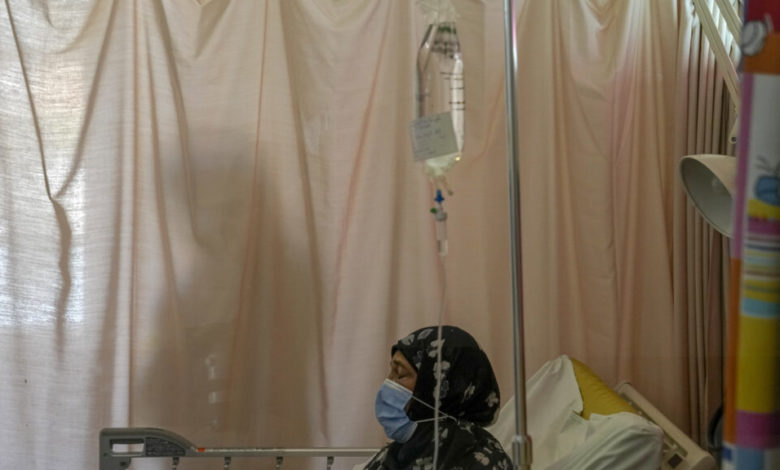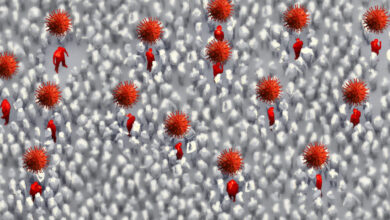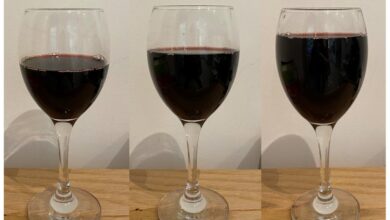Women see more adverse events with cancer treatments

When Crystal Ortner was identified with stage 4 colon most cancers, her medical doctors determined to deal with it with a particularly aggressive chemotherapy routine that included six medicine, together with quite a few surgical procedures.
Throughout her preliminary spherical of remedy, Ortner skilled septic shock, inflicting her medical doctors to stop chemotherapy for a time period as a result of her physique was too weak to deal with it. Later, she stated, her excessive unintended effects whereas on chemotherapy — fixed vomiting, nausea, an general feeling of full debilitation — felt like “going to hell and again.”
“Chemotherapy is like dying coursing by your veins. And you’re feeling such as you’re going to die, and also you’re given simply sufficient time to get better to return and do it yet again,” stated Ortner, a 37-year-old mom of two and medical psychologist in South Florida.
commercial

There’s no telling how different sufferers could have responded to the remedy. However there’s not less than some motive to consider Ortner’s intercourse may have been an element.
Analysis has lengthy proven that ladies are more likely than men to have severe reactions to chemotherapy therapies. On the identical time, rising proof suggests that ladies additionally expertise higher toxicity with focused therapies and immunotherapies, which purpose partly to mitigate the inherent toxicities of chemotherapy.
commercial
Total, girls have been 34% extra seemingly than males to expertise extreme hostile results in response to their most cancers therapies, a determine that elevated to 49% for ladies receiving immunotherapies, in keeping with a recent study within the Journal of Scientific Oncology (JCO). The research was based mostly on 30 years of information from the SWOG Most cancers Analysis Community, a worldwide most cancers analysis group that designs and conducts publicly funded medical trials.
A part of the issue, consultants say, is that intercourse variations usually are not taken under consideration within the improvement of most cancers therapies.
“The vast majority of single-cell research which can be taking place proper now in 2022 are male single-cell research,” stated Narjust Duma, who treats lung most cancers sufferers on the Dana-Farber Most cancers Institute and advocates for extra inclusive most cancers analysis.
Duma, who was not concerned within the research, defined that almost all cell traces and animal fashions utilized in preclinical research of investigational most cancers medicine have XY chromosomes, not XX. Moreover, Duma stated, upward of 70% of contributors in Part 1 trials are males.
Consequently, any indicators that, say, an immunotherapy is “very well-tolerated” usually apply solely to males, Duma stated. Part 1 trials information dosing choices for later-stage trials.
The JCO research examined Part 2 and three trials performed from 1989-2019, and analyzed the extreme treatment-related hostile results of chemotherapy, focused remedy, and immunotherapy. Researchers excluded sex-specific breast and prostate cancers. In addition they targeted on hostile results resembling hassle respiratory or bone marrow suppression — problems important sufficient that they usually require hospitalization.
Sixty-two % of research contributors have been males; 9% of research contributors have been Black; and 5% have been one other or unknown race.
“We have to have higher illustration in medical trials — not solely women and men, but in addition ensuring we get enough illustration of non-white contributors,” stated Margaret Gatti-Mays, an immunotherapy specialist at Ohio State’s James Complete Most cancers Heart.
She stated the research “actually identified that void within the analysis literature. Now we have to do higher.”
Joseph M. Unger, a biostatistician on the Fred Hutchinson Most cancers Analysis Heart and the research’s first writer, stated that, to his information, the research is the primary to have a look at intercourse variations in extreme hostile occasions in medical trials in relation to focused therapies and immunotherapies.
Whereas Unger’s research focuses on medical trials particularly, experiences of higher hostile reactions to immunotherapies amongst girls have begun to emerge.
In 2019, for instance, Duma reported that ladies receiving immunotherapies for melanoma or non-small cell lung most cancers skilled extra hostile occasions than males — generally together with intensive kidney or liver injury. Gatti-Mays has noticed the same sample.
Not the entire explanation why girls can expertise harsher responses to most cancers therapies than males are clear, though consultants have some seemingly explanations. Girls take longer than males to metabolize medicine, on common, stated Sue Haupt of the Peter MacCallum Most cancers Centre in Australia. That explains the higher toxicities girls usually expertise throughout chemotherapy, prompt Haupt, who has studied intercourse disparities in most cancers extensively.
With regards to immunotherapies, Haupt hypothesized that one motive girls may have harsher reactions is as a result of they’re extra vulnerable to autoimmune ailments than males. The whole function of an immunotherapy is to prime somebody’s immune system to combat most cancers, which can in flip spur some girls’s immune techniques into overdrive. Haupt stated large-scale medical trials could be crucial to check this speculation. She additionally famous that ladies may also profit from their usually stronger immune techniques; girls are much less more likely to develop most cancers than males within the first place.
Gatti-Mays finds one encouraging glimmer within the JCO knowledge: Regardless of experiencing extra hostile occasions than males, girls maintained their remedy protocols for simply as lengthy. This might imply that the hostile occasions didn’t impede girls’s high quality of life as drastically as it would seem at first blush. That’s a query Unger hopes to discover in future work.
“I’m to grasp whether or not high quality of life, which is the very speedy type of expertise of a affected person’s well-being, whether or not that really differs by intercourse. To me that will type of additional develop this concept of sex-based variations within the expertise of most cancers therapies,” Unger stated.
Duma stated she fears that some clinicians may pull some girls sufferers off an immunotherapy or focused remedy as soon as severe hostile occasions happen, regardless of the JCO knowledge displaying that ladies can maintain remedy, reasonably than managing these occasions in order that the ladies proceed to get the advantages of the remedy.
She stated she additionally has some sympathy for physicians who prescribe excessive doses of chemotherapy or immunotherapies. Within the case of chemotherapy, the dogma of “most tolerated dose” is entrenched, Duma stated. For now immunotherapies are additionally given on the identical dose to everybody no matter their intercourse and weight.
It’s ironic, in Duma’s view, that probably the most apparent distinctions between individuals — proper right down to their chromosomes — is generally ignored in most cancers drug improvement. Precision solely goes thus far, not less than for now.
“The start of precision oncology is that women and men are completely different. We’re equal, however we’re completely different,” Duma stated.




